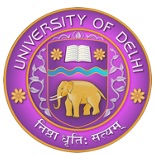DUET PhD in East Asian Studies Question Paper with Answer Keys 2019-20

Delhi University Entrance Test (DUET) 2019-20 PhD in East Asian Studies Question Paper with answers DUET PhD in East Asian Studies Question Paper 2019-20 with solution you can download it in FREE, if DUET PhD in East Asian Studies Question Paper 2019-20 in text or pdf for DUET PhD in East Asian Studies Question Paper 2019-20 Answer Keys you can download DUET 2019-20 page also just Go to menu bar, Click on File->then Save.
DUET PhD in East Asian Studies Question Paper with Answer Keys 2019-20
Delhi University Entrance Test (DUET) 2019-20 PhD in East Asian Studies Question Paper with Answer Keys Free Download PDF is available in www.oldquestionpapers.net which has been provided by many students this DUET 2019-20 paper is available for all the students in FREE and also DUET PhD in East Asian Studies Question Paper 2019-20 fully solved DUET with answer keys and solution.
You can get daily updates on DUET 2019-20 from www.oldquestionpapers.net here you can also check similar links for other related study materials on DUET PhD in East Asian Studies Question Paper question bank 2019-20 is also available in English and Hindi Language.
EXAMPLE QUESTIONS
Q1. When A = B and B = C then A = C, is an example of
- 1. Inference
- 2. Deduction
- 3. Ontology
- 4. Triangular logic
Q2. Who was the first president of South Korea
- 1. Roh Tae Woo
- 2. Choon Doo Hwan
- 3. Syngman Rhee
- 4. Park chung Hee
Q3. What is the difference between arts and science?
- 1. Arts deals with imaginary ideas; science deals with concrete reality
- 2. Arts is for enjoyment; science is for solving the riddles of nature
- 3. Arts is based on beliefs and convictions; science is based on rational explanations
- 4. Arts is a matter of private pursuit of individuals; science is a public pursuit for society
Q4. The bakuhan system during the Tokugawa period was a
- 1. System of centralized control of whole of Japan by the Shogun
- 2. System of independent autonomous political units under the emperor
- 3. System of sharing of political authority between the center and the regions
- 4. System of authority shared between the Shogun and the emperor
Q5. The intellectual currents of Confucianism, Taoism, Legalism and Mohism emerged in ancient China in response to
- 1. The political reorganization of various kingdoms
- 2. The need to reunite the various kingdoms of ancient China
- 3. The need to develop a ruling ideology for the ruling elite
- 4. To restore order to the chaotic situation of civil war and anarchy
Q6. Post-structuralism differed from structuralism in its emphasis on
- 1. The comparison between the structures of different societies
- 2. The relationship between different structures of society
- 3. The hierarchy of structures within the same society
- 4. The role of time and space in understanding the structure of society
Q7. Plato as a philosopher is most appropriately described as
- 1. Realist
- 2. Experimentalist
- 3. Idealist
- 4. Modernist
Q8. Sampling in research refers to
- 1. Selection of less than ten percent of the people under study
- 2. Selection of all the members of the group or community under study
- 3. Selection of a group of people who represent all the variables of a larger group
- 4. Selection of a group of people as subjects of study
Q9. The May Fourth Movement of 1919 began in response to
- 1. The increasing control of China by the western powers
- 2. The imposition of the adverse terms and conditions by the victors of the first world war
- 3. The success of the Bolshevik revolution under the leadership of Lenin in Russia
- 4. The warlords’ rule after the collapse of the Manchu dynasty and its excesses in China
Q10. The dependent variable refers to
- 1. Those variables which have a direct correlation with other variables
- 2. Those variables which have an inverse relationship with other variables
- 3. Those variables which varies when the other factors change
- 4. Those variables which remain constant when the other factors change
DUET PhD in East Asian Studies Question Paper with Answer Keys 2019-20 Download PDF File:
|
Sr. No. |
Papers Name | PDF Files |
| 1. | PhD in East Asian Studies |
Similar Pages…..
See Also……
